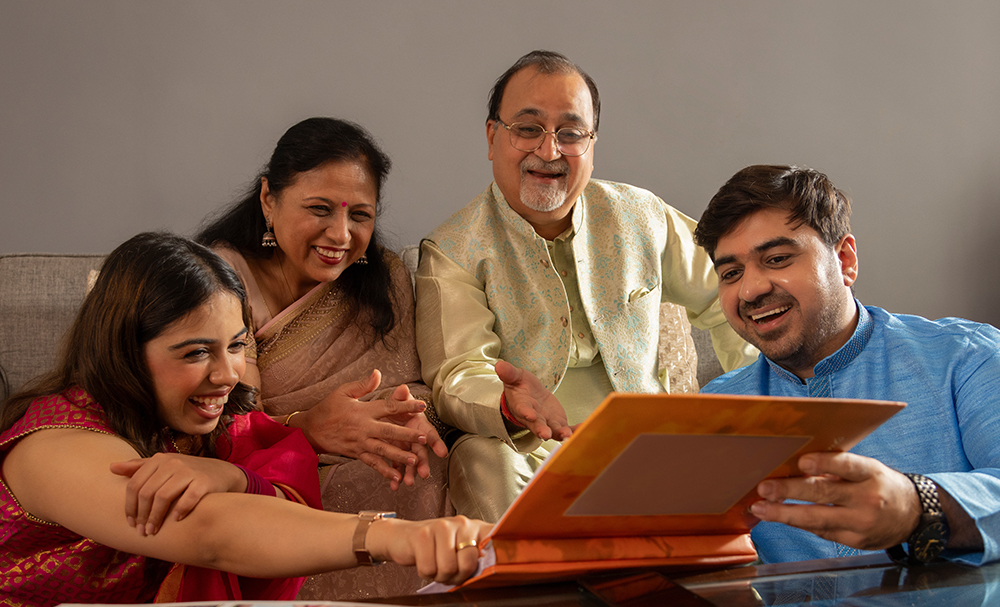FAQ
Frequently asked questions
Why should I make a Will?
A Will ensures your loved ones receive what you wish, without confusion or disputes. It
gives peace of mind and saves your family from legal hassles.
Who can make a Will?
Any Indian citizen aged 18 years or above with a sound mind can make a Will.
Is a Will valid if made online?
Yes. The Will you create on MakeMyWill.in is legally valid once you print, sign, and get it witnessed by two people.
Do I need to register my Will?
Registration is optional, not mandatory. A signed Will with witnesses is legally valid even if not registered
Who can be my executor?
Your executor is someone who carries out your wishes after your lifetime. It can be a family member, friend, or even a professional
Can my beneficiary also be my executor?
Yes, your executor can also be one of your beneficiaries if you trust them to manage your estate fairly.
How many witnesses do I need?
You need two adult witnesses who are not beneficiaries in your Will.
What happens if I don’t make a Will?
If you don’t make a Will, your property will be distributed as per the Indian Succession Laws, which may not reflect your personal wishes.
Can I include jointly owned assets?
Yes. You can include your share or portion of any jointly owned asset. Mention the coowner’s name and your ownership percentage.
Can I change or update my Will later?
Yes. You can update your Will anytime. MakeMyWill.in offers unlimited free updates till the subscription ends.
What documents do I need to make a Will?
You don’t need to upload any documents. Just keep details of your assets, beneficiaries, and executor ready.
Can I make a Will if I live outside India (NRI)?
Yes. NRIs can create Wills for their India-based assets using MakeMyWill.in. For foreign assets, local laws may apply.
Can I bequeath assets to a trust or charity?
Yes. You can include charitable organizations, trusts, or institutions as beneficiaries. You’ll just need to provide their legal details.
What are the “Do’s and Don’ts” while writing a Will?
- Do’s: Use full names, list all assets clearly, and mention your relationship with beneficiaries.
- Don’ts: Don’t include minors as executors or leave unclear descriptions of assets.
What if I don’t know some legal terms like executor or witness?
No worries! Our website includes simple tooltips and explanations to help you understand each term as you go.
Can I include digital assets like photos or online accounts?
Yes. You can list digital assets such as bank logins, online wallets, or digital collections, along with instructions on access.
Is a Will made on MakeMyWill.in legally recognized in India?
Yes . It follows the Indian Succession Act, 1925 and is legally valid once printed and signed properly.
Can I include digital assets like photos or online accounts?
Yes. You can list digital assets such as bank logins, online wallets, or digital collections, along with instructions on access.
What if I make mistakes while entering details?
You can edit and re-generate your Will anytime before signing. MakeMyWill.in allows free revisions in your account.
Do I need a lawyer to make a Will?
Not necessarily. Our platform guides you step-by-step. However, you can consult a lawyer if your estate is complex or includes foreign assets.
Can a handwritten Will be valid?
Yes. Even a handwritten Will is valid if it’s signed and witnessed properly. MakeMyWill.in just makes the process simpler and cleaner.
What should I do after I print my Will?
- Print on plain paper
- Sign in presence of two witnesses
- Store safely (home, locker, or with your executor)
How can I store my Will safely?
Keep one copy at home, another with your executor, and optionally one in a bank locker.
What happens to my Will after my lifetime?
Your executor will present your Will to the concerned authorities and ensure your assets are distributed as you wished.
What happens if I make multiple Wills?
The latest Will automatically overrides all previous versions — always date and sign your new Will clearly.
Is a Will made on MakeMyWill.in legally recognized in India?
Yes . It follows the Indian Succession Act, 1925 and is legally valid once printed and
signed properly.
